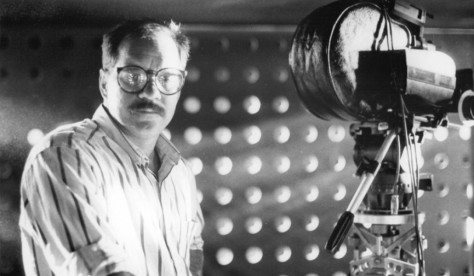This article was originally published on Premiumbeat’s blog here.

Hear from industry vet Paul Schrader as he talks the future of Hollywood and oncoming demise of the multiplex.
Paul Schrader, best known for writing such classic screenplays as Taxi Driver and Raging Bull, is also an accomplished director who recently helmed Dying of the Light starring Nicholas Cage and collaborated with author Bret Easton Ellis for The Canyons in 2013. Schrader recently spoke at an intimate venue at IFP’s Made in NY Media Center in Dumbo, Brooklyn about the state of the industry as he sees it.
After working for decades in the industry, one might think Schrader would hold onto more traditional ways of working. In fact, Schrader’s wisdom revealed him more in line with Futurist rather than Luddite thought when he expounded on topics ranging from writerly advice to the changing future of entertainment.
Schrader first addressed the construct of the two-hour feature film as an antiquated model in need of reinvention:
The goal of a storyteller is not to invest in technology, it’s simply to use the best tools available. If we come up with a better hammer, we use that hammer. The vessel of audio-visual storytelling has changed totally. The notion of the theatrical two-hour experience is a 20th-century model they came up with about a hundred years ago for economic reasons. [At that time] people thought that movies were a projected image in a dark room in front of an audience. Maybe that’s what movies were, but they aren’t anymore.
It’s finally now that we’ve broken away from the pillars of that 20th-century model. One pillar is length. To me, a Youtube cat video is a movie. So is Mad Men. One is four minutes long and one is about sixty hours long, but they’re both movies. [The second pillar is] economics. You can’t make your money showing in theaters, it’s just not there. [The third pillar is] the delivery system people prefer. [Other services compete against] getting me out of the house. The kind of movies people leave the house for are for something big, or something that is really benefitted by the communal experience. The reason can’t be, “here’s another movie like the one from last week.
Schrader maintained this broken 20th-century model carries over to our conception of the dramatic three-act structure used for ages:
The mechanism of the three-act drama has become so rustic. You can hear the gears clanking when you’re in the theater. People have seen so much audio-visual entertainment over the years. How many hours of drama did your father see? How many did his father see? By your 20s you’ve seen tens of thousands of hours of longform filmed drama, and it’s so old hat. Your father saw a fraction of that. How in the world can you get this mechanism alive?
Read more wisdom from Schrader here.